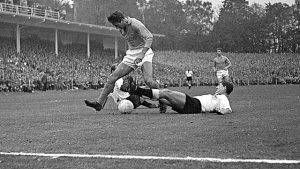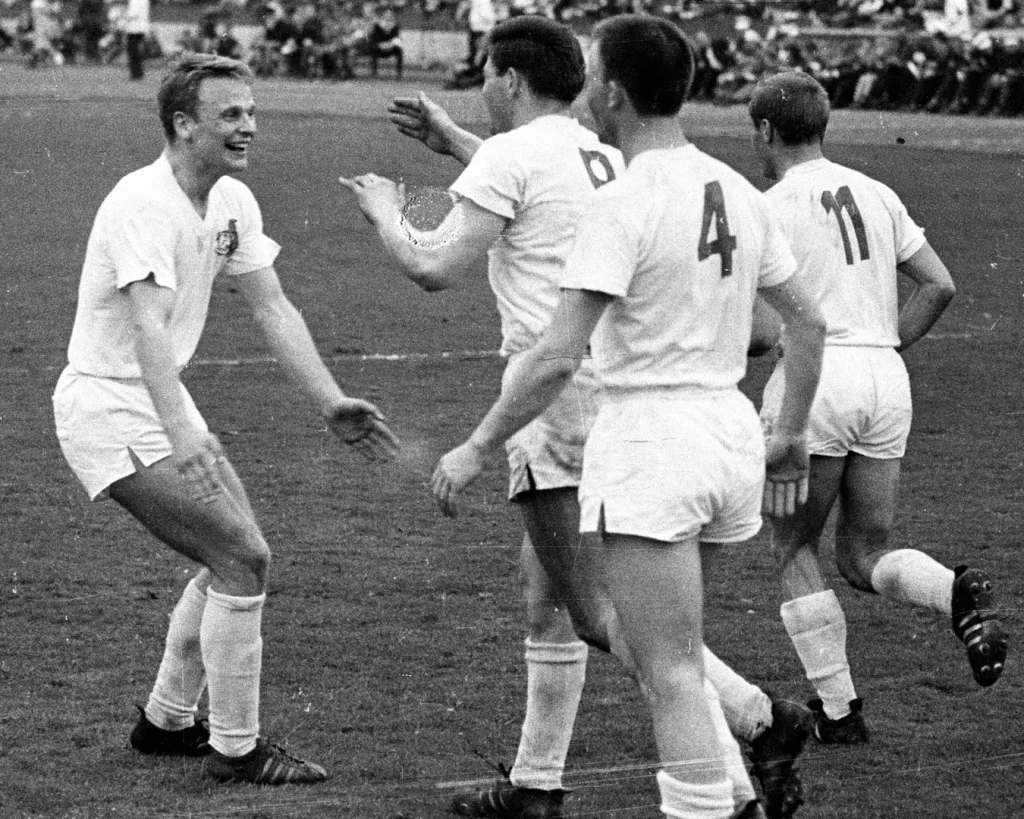The history of Bundesliga, Germany’s top professional football league, dates back to 1963 when the league was officially created, and has since become one of the most successful and popular football leagues in the world. We will explore the history of the Bundesliga, including how and why it was created, and the impact it has had on German football and society.
The Aftermath of World War II:
After the end of World War II, Germany was in a state of ruin, both economically and socially. The country had been divided into four occupation zones by the Allied powers, and the process of rebuilding was slow and difficult. Despite these challenges, the sport of football continued to be popular among the German people, who saw it as a way to bring some normality and joy to their lives.
In the years following the war, German football was in a state of disarray, with no national league and no clear structure for professional football. The only organized competition was the Oberliga, a regional league system that was dominated by teams from the Western occupation zones.
The Creation of the Bundesliga:
In the late 1950s and early 1960s, there was a growing sense among German football fans and officials that the sport needed a more structured and professional league system. The Oberliga was seen as outdated and unsuitable for a country that was rapidly rebuilding itself, and there was a desire to create a national league that could compete with the best leagues in Europe.
In 1962, the German Football Association (DFB) announced plans to create a new national league, which would be known as the Bundesliga. The league would consist of 16 teams, and would be based on a system of promotion and relegation, similar to the leagues in England and Italy.
The creation of the Bundesliga was met with some skepticism and resistance from traditionalists, who saw it as a threat to the regional Oberliga system. However, the new league was embraced by many fans and officials, who saw it as a way to modernize and professionalize German football.
The First Season:
The first season of the Bundesliga took place in 1963, with 16 teams from across Germany competing for the title. The league was an immediate success, with large crowds and intense competition on the pitch.
The first champions of the Bundesliga were 1. FC Köln, who finished the season with 45 points, two ahead of second-placed Meidericher SV. The league’s top scorer was Uwe Seeler of Hamburger SV, who scored 30 goals in 31 appearances.

The Impact of the Bundesliga:
The creation of the Bundesliga had a profound impact on German football and society. The league brought a new level of professionalism and competitiveness to German football, and helped to establish Germany as a major force in European football.
The Bundesliga also had a significant impact on German society, helping to promote a sense of unity and national pride in a country that was still recovering from the trauma of World War II. The league was seen as a symbol of German modernity and progress, and helped to showcase Germany’s growing economic and cultural power to the world.
The Success of the Bundesliga:
Since its creation in 1963, the Bundesliga has gone from strength to strength, becoming one of the most successful and popular football leagues in the world. The league has produced some of the greatest players in European football history, such as Franz Beckenbauer, Gerd Müller, and Miroslav Klose, and has attracted some of the world’s top managers, including Jürgen Klopp, Pep Guardiola, and Carlo Ancelotti.
The Bundesliga has also been a dominant force in European club football, with German clubs winning the UEFA Champions League and UEFA Europa League multiple times over the years. Additionally, the German national team, which is made up of players from Bundesliga clubs, has won numerous international tournaments, including the World Cup in 1974, 1990, and 2014.
One of the reasons for the Bundesliga’s success has been its commitment to youth development and talent identification. German clubs have invested heavily in their youth academies, and have a reputation for producing some of the best young players in Europe. This has helped to ensure a steady supply of talent for the Bundesliga and the German national team, and has also contributed to the league’s financial success, as young players are often sold for large transfer fees to other European clubs.




